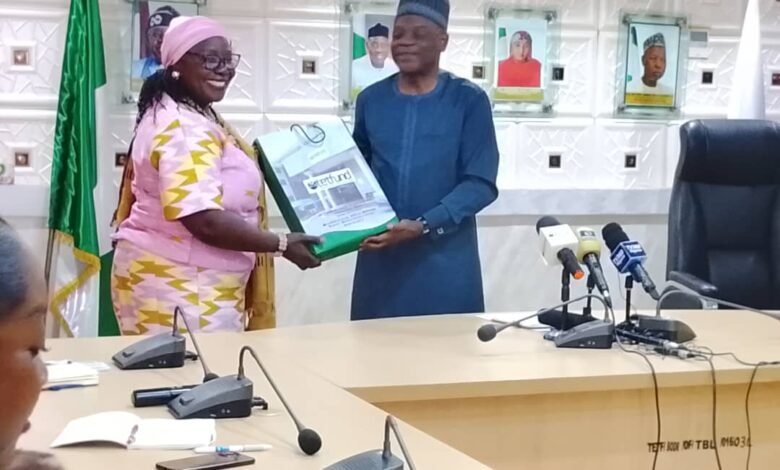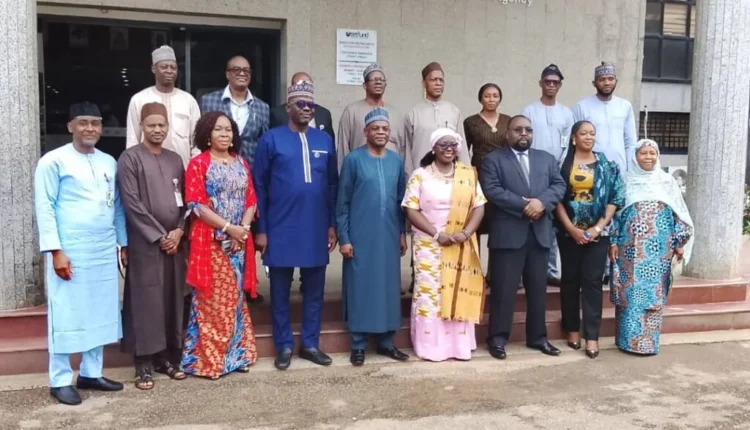UNDP and TETFund Partner to Boost Nigerian University Innovation Hubs: A Detailed Report
UNDP and TETFund Partner to Boost Nigerian University Innovation Hubs: A Detailed Report
The United Nations Development Programme (UNDP) and the Tertiary Education Trust Fund (TETFund) have formalized a partnership to significantly expand and enhance university-based innovation hubs across Nigeria.
This collaboration, announced on Monday during a courtesy visit by UNDP at TETFund’s headquarters Abuja. The meeting between a UNDP delegation and TETFund’s Executive Secretary, Arc. Sonny Echono, aims to leverage existing resources and expertise for maximum impact.

TETFund’s Existing Infrastructure and Ambitions:
Arc. Echono highlighted TETFund’s substantial existing investment in university innovation. The Fund has already established over 60 innovation hubs in tertiary institutions nationwide, beginning with 18 and expanding to 68 in 2024.
These hubs are not simply physical spaces; TETFund is actively integrating them with local industries for practical training. Examples include partnerships with Israeli startups for model replication in Abuja, Panteka in Kaduna (likely a manufacturing or industrial company), and Computer Village in Lagos (a well-known technology market).
The partnership with UNDP will further integrate these existing TETFund hubs with UNDP-supported centers, creating a more extensive and interconnected network. Beyond physical infrastructure, TETFund’s commitment extends to:
Commercializing Research: A newly formed national committee will focus on bringing research findings to market, translating academic breakthroughs into tangible economic benefits.
Energy Infrastructure: TETFund is investing in energy efficiency upgrades at atleast nine universities this year and is constructing six regional laboratories across Nigeria’s geopolitical zones. This emphasis on renewable energy aligns with global sustainability goals.
Technical Skills Development: The program will focus on providing students with the practical skills needed to thrive in the modern economy.
UNDP’s Contribution and Vision:
Mrs. Elsie Attafuah, UNDP’s Resident Representative in Nigeria, praised TETFund’s proactive approach and expressed enthusiasm for the collaboration. UNDP’s involvement builds upon their existing support for eight university innovation hubs, scheduled for completion by September.
However, Attafuah stressed that the initiative transcends simply creating physical spaces. The partnership aims to:
Co-invest in Ideas: The focus is not just on building hubs, but on funding and nurturing promising student-led ventures. A key challenge addressed is securing funding and mitigating risks associated with early-stage innovation.
Read Also: Labour Party rules out 2027 coalition plans
Structural Transformation: UNDP emphasizes value chain development and technological advancement as crucial for Nigeria’s economic progress. This includes leveraging Nigeria’s natural resources, such as lithium deposits in Nasarawa State, through technological innovation to add value locally.
AI Development: A key collaboration involves establishing Nigeria’s first AI Core at the University of Lagos, reflecting a commitment to embracing cutting-edge technologies.
Transparency and Funding: Attafuah clarified that the UNDP’s contribution to these hubs utilizes federal allocations channeled through the UN system. This ensures that the funding ultimately originates from and benefits Nigeria. The UNDP is open to co-investment and shared governance of these hubs, offering study tours to successful models in other countries (Uganda and UAE were cited as examples).
Overall Significance:
The UNDP-TETFund partnership represents a significant commitment to fostering innovation and entrepreneurship within Nigeria’s higher education system. By combining TETFund’s existing infrastructure and reach with UNDP’s expertise in supporting innovation ecosystems and securing international partnerships, the collaboration promises to create a powerful engine for economic growth and youth empowerment in Nigeria.
The focus on addressing funding challenges, fostering collaboration between academia and industry, and integrating sustainable practices into the initiative positions it as a model for other developing nations.

